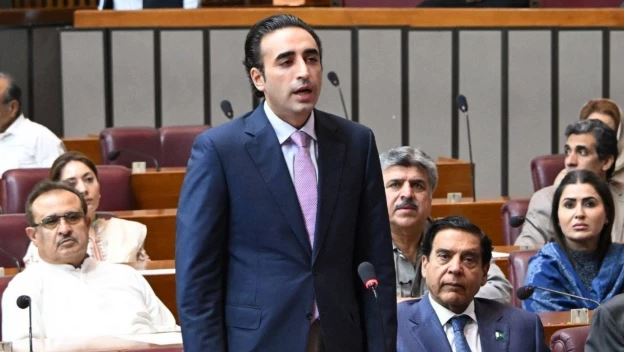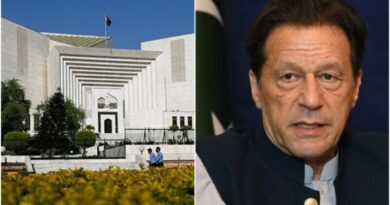Bilawal condemns US attack on Iran, warns India over IWT breach
‘There’ll be no one left when they come for us’: Bilawal demands end to Israeli aggression
Staff Report
ISLAMABAD: Pakistan People’s Party Chairperson Bilawal Bhutto Zardari said on Monday that Pakistan would consider war if India refused to honour the Indus Waters Treaty. He also condemned recent US airstrikes on Iranian nuclear facilities, calling them “based on lies.”
Addressing the National Assembly during the ongoing budget session, Bilawal said the attacks on Iran’s nuclear sites and the targeting of scientists and journalists were unjustified and violated international norms.
He said his party was consulted on the budget this time, and some of its inputs had been incorporated into the budget. He appreciated the government for expressing consent to PPP’s recommendations, including leaving the digital tax on services to the jurisdiction of the provinces and reducing the sales tax on solar panels from eighteen percent to ten percent.
Bilawal expressed satisfaction over improvements in economic indicators, especially the reduction in inflation as a result of the government’s policies. He commended the twenty percent increase in the budget of the Benazir Income Support Program.
He demanded the declaration of an agricultural emergency, saying that it would provide relief to farmers and protect the economy’s backbone.
Bilawal Bhutto mentioned that the defence budget had been enhanced by twenty percent because of India’s hostile posture. He said Pakistan had once again internationalized the Kashmir dispute.
Referring to the visit of a high-level delegation led by him to various capitals, Bilawal said Pakistan had defeated India on the battlefield, as well as on the diplomatic and narrative fronts. He said they presented Pakistan’s stance and narrative based on peace.
He said India had only two options: either to comply with the Indus Water Treaty, or Pakistan would wage a war to secure water from all six rivers.
He added that such actions were part of a broader pattern of aggression that started with Gaza, continued in Yemen, and has now reached Iran.
He warned, “If India does not respect the Indus Waters Treaty, Pakistan will go to war,” stressing that India has already lost and Pakistan has already won on the diplomatic and political fronts.
Criticising previous Pakistani leadership for what he described as weak responses to Indian actions in Kashmir, Bilawal said the current government had demonstrated resolve by downing six Indian fighter jets in response to Indian incursions, asserting that the issue of Kashmir had been internationalised once again.
He further alleged that both Indian and Israeli lobbies were actively working to malign Pakistan globally, including attempts to place the country back on the FATF grey list — efforts he said had failed.
Bilawal called for peace between Pakistan and India but underlined the need for military preparedness, citing India’s refusal to officially acknowledge the ceasefire.
Responding to opposition heckling, Bilawal said his party, though not in the federal cabinet, remained committed to representing the people’s concerns and bringing constructive criticism and proposals to the table.
Bilawal, citing the world’s silence on Israeli aggression against neighbouring Iran, warned that “if we don’t speak out for Iranians, there will be no one left when they come for us.”
“First, they came for the Palestinians, but the world did not speak out because they weren’t Palestinian. Then they came for the Lebanese, but we did not speak out because we were not Lebanese. And then they came for the Yemenis, but we did not speak out because we’re not from Yemen,” Bilawal said.
“Now, they’ve come for Iran. If we do not speak out, there will be no one left when they come for us. The Israeli regime’s aggression across the region must be stopped,” he added while warning that ever-expanding war being purported by Israel’s genocidal had the potential to “drag every towards World War III”.
The former FM’s remarks — a reference to Pastor Martin Niemöller’s poem First They Came — come against the backdrop of an exponential increase in the Middle East turmoil due to Israel’s attack on Iran — a situation further exacerbated by the US strikes on Tehran’s nuclear facilities.




